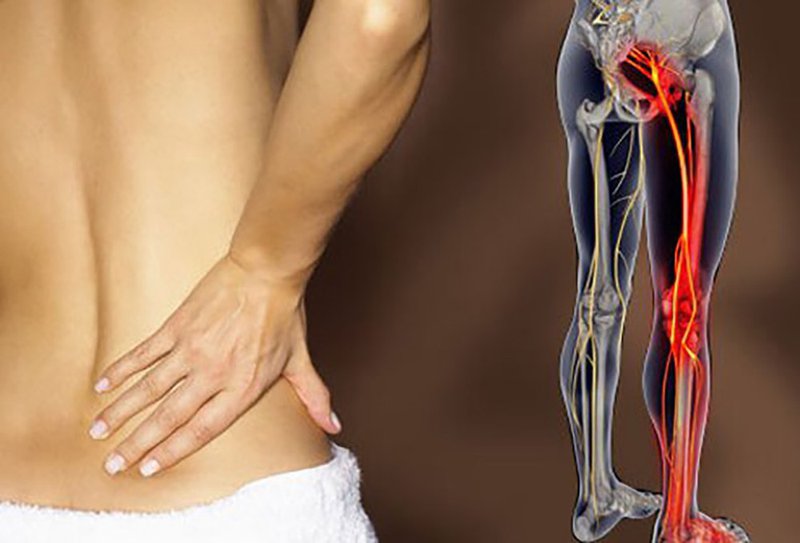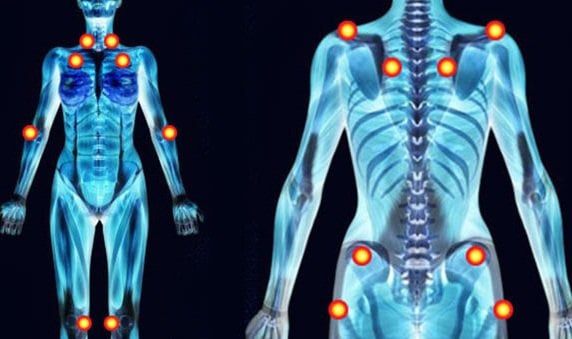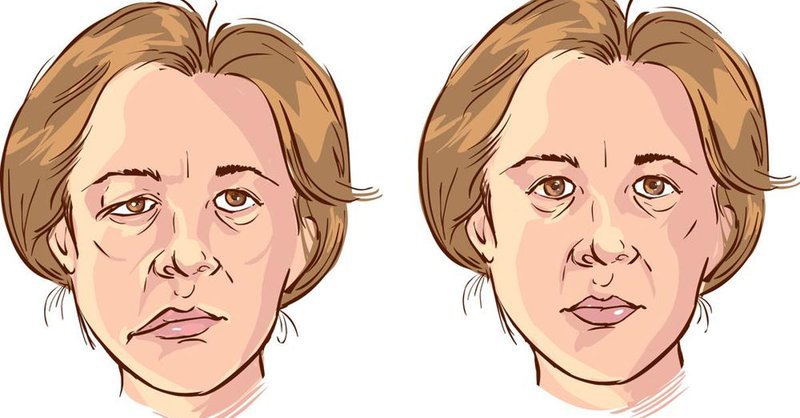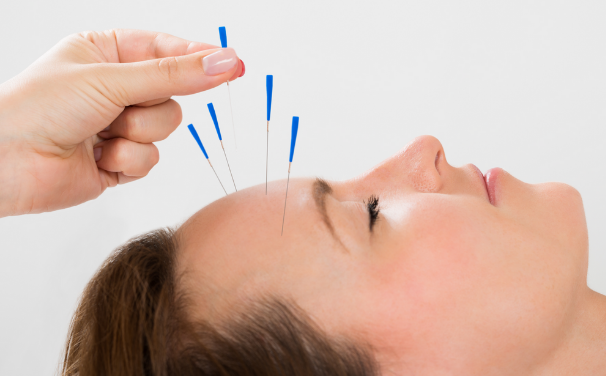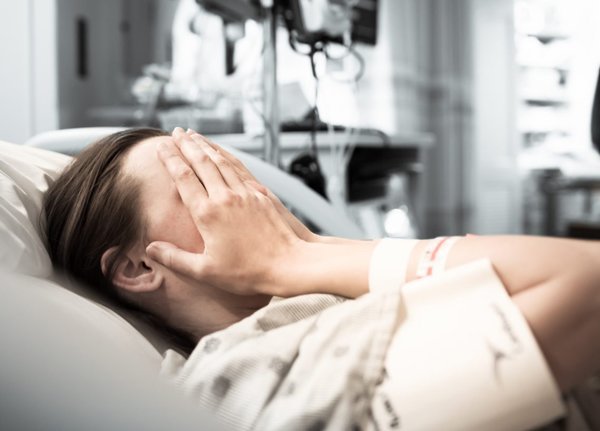Does Acupuncture Cause You Pain?
This is an automatically translated article.
Acupuncture is a form of treatment that involves inserting very thin needles through a person's skin at specific points on your body, to different depths. Scientifically, how acupuncture works is still unclear. Some people think it works by helping to balance important energies, while others believe it has psychoactive effects. So does acupuncture cause you pain? Find out more articles below.
1. What is acupuncture?
Acupuncture is a healing therapy with roots in Traditional Chinese Medicine (TCM). Acupuncture has been around for more than 2,500 years. It is a technique used to balance the flow of energy and is also known as life force, chi, or qi. Qi is believed to flow through pathways in our bodies. The goal of acupuncture is to remove blockages and balance the body's energy flow, helping us regulate our emotional, mental, and physical health.
Acupuncture stimulates specific points called acupoints located along these pathways using a thin, solid metal needle pierced through the skin. Acupuncture needles have rounded edges so as not to make cuts in the skin. Stimulating these sites on the body affects our nerves, muscles, and connective tissue.
Acupuncture is most commonly used to treat pain, as it is believed to enhance the body's levels of natural pain relievers. Acupuncture is also now used to promote overall health and reduce stress. Acupuncture can also be used to treat a variety of conditions, including:
Allergies Anxiety and depression Nausea and vomiting caused by chemotherapy and after surgery Toothache Headaches and migraines Disease high blood pressure Insomnia and sleep disturbances Labor pain Menstrual cramps Neck pain Rheumatoid arthritis Ventilation disorders in respiratory failure
Acupuncture stimulates specific points called acupoints located along these pathways using a thin, solid metal needle pierced through the skin. Acupuncture needles have rounded edges so as not to make cuts in the skin. Stimulating these sites on the body affects our nerves, muscles, and connective tissue.
Acupuncture is most commonly used to treat pain, as it is believed to enhance the body's levels of natural pain relievers. Acupuncture is also now used to promote overall health and reduce stress. Acupuncture can also be used to treat a variety of conditions, including:
Allergies Anxiety and depression Nausea and vomiting caused by chemotherapy and after surgery Toothache Headaches and migraines Disease high blood pressure Insomnia and sleep disturbances Labor pain Menstrual cramps Neck pain Rheumatoid arthritis Ventilation disorders in respiratory failure
2. Does acupuncture hurt you?
One misconception about acupuncture is that this treatment is painful, which is why some people don't want to try acupuncture. The treatment is not intended to cause injury, although the patient may experience some mild discomfort during the treatment.
“Most of the people who are being treated don't feel any problem at all,” Prajna Paramita Choudhury, a licensed and certified acupuncturist, tells Healthline. “This is what would describe pain as a limb sensation. It can be heavy, throbbing or dull, but all are positive.” This can vary due to our overall pain tolerance and sensitivity. Sometimes the first acupuncture treatment will be more painful than subsequent treatments. This may be because certain energy points on our body have been activated for the first time. Symptoms of the disease may worsen slightly before they go into remission.
“Most of the people who are being treated don't feel any problem at all,” Prajna Paramita Choudhury, a licensed and certified acupuncturist, tells Healthline. “This is what would describe pain as a limb sensation. It can be heavy, throbbing or dull, but all are positive.” This can vary due to our overall pain tolerance and sensitivity. Sometimes the first acupuncture treatment will be more painful than subsequent treatments. This may be because certain energy points on our body have been activated for the first time. Symptoms of the disease may worsen slightly before they go into remission.
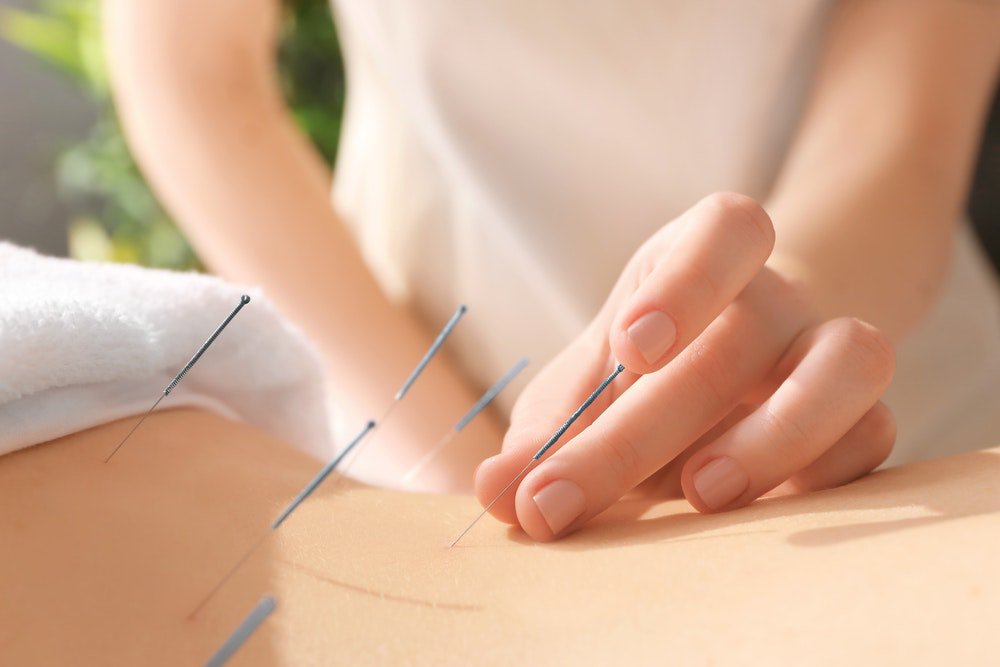
Khi kim châm cứu đến độ sâu nhất định, bạn sẽ cảm thấy đau âm ỉ
“Although pain is not a negative issue during acupuncture, the patient certainly does not want this feeling to be prolonged. In most cases, the pain goes away quickly once the needle is removed,” says Choudhury. "If my patient continues to feel pain, I immediately remove the needle."
Although everyone's experience will be different, acupuncture is usually not uncomfortable or painful. It doesn't need to cause pain to be effective. It's good that you feel energy in the form of feelings like dullness and heaviness," says Choudhury. "It's also considered positive feedback and means something is about to happen."
Often the patient will not feel the needles being inserted because they are thin and gently inserted.When the needles reach a certain depth, the person may experience mild, dull pain or a slight tingling sensation. This could be a sign that the treatment is working and that the needle has been inserted into the correct area. The patient may also feel a slight heaviness or electric shock sensation. Tinnitus may arise at the acupuncture points. If you feel severe pain or sharp pain, you should inform your acupuncturist. Most of the time the pain or discomfort is transient and lasts for a few seconds. Using a larger gauge needle or inserting the needle deeper is more likely to cause pain.Some brands of needles are also more likely to cause pain.Some doctors use more force or use a heavy technique. The most important thing is to only see an acupuncturist who is experienced and licensed for treatment. Also, respond right away if you are experiencing pain beyond your limits. mild discomfort. You can also ask the doctors to proceed more slowly, use fewer needles, insert less hairs, and manipulate them less. “Sometimes the pain is due to poor needle technique,” says Choudhury. “If everything is making you uncomfortable, you can try a different therapist.”
Pain can also come from the needle being inserted into some more sensitive points than others. If the needle hits a nerve, muscle, or small blood vessel, the person may feel severe pain. However, it doesn't matter if the pain is only for a few seconds. Points on the extremities are more likely to produce a stronger reaction in the form of a dull ache or a tingling sensation. Spots with less flesh, such as near the fingernail, can sometimes produce sharper pain. During most acupuncture, these sensations are short-lived.
Choudhury explains the areas of the body that hurt the most: “It really depends on the person. For many people, the feet hurt more because they contain more important points in the body. The person may feel more pain in the spots that are most relevant to his or her treatment, as these may be locations where the qi is blocked. Choudhury says the practitioner needs to be aware and sensitive to the needs of the person being treated. "It's about responding to the model explicitly that they raised it and dealing with the issue appropriately."
Although everyone's experience will be different, acupuncture is usually not uncomfortable or painful. It doesn't need to cause pain to be effective. It's good that you feel energy in the form of feelings like dullness and heaviness," says Choudhury. "It's also considered positive feedback and means something is about to happen."
Often the patient will not feel the needles being inserted because they are thin and gently inserted.When the needles reach a certain depth, the person may experience mild, dull pain or a slight tingling sensation. This could be a sign that the treatment is working and that the needle has been inserted into the correct area. The patient may also feel a slight heaviness or electric shock sensation. Tinnitus may arise at the acupuncture points. If you feel severe pain or sharp pain, you should inform your acupuncturist. Most of the time the pain or discomfort is transient and lasts for a few seconds. Using a larger gauge needle or inserting the needle deeper is more likely to cause pain.Some brands of needles are also more likely to cause pain.Some doctors use more force or use a heavy technique. The most important thing is to only see an acupuncturist who is experienced and licensed for treatment. Also, respond right away if you are experiencing pain beyond your limits. mild discomfort. You can also ask the doctors to proceed more slowly, use fewer needles, insert less hairs, and manipulate them less. “Sometimes the pain is due to poor needle technique,” says Choudhury. “If everything is making you uncomfortable, you can try a different therapist.”
Pain can also come from the needle being inserted into some more sensitive points than others. If the needle hits a nerve, muscle, or small blood vessel, the person may feel severe pain. However, it doesn't matter if the pain is only for a few seconds. Points on the extremities are more likely to produce a stronger reaction in the form of a dull ache or a tingling sensation. Spots with less flesh, such as near the fingernail, can sometimes produce sharper pain. During most acupuncture, these sensations are short-lived.
Choudhury explains the areas of the body that hurt the most: “It really depends on the person. For many people, the feet hurt more because they contain more important points in the body. The person may feel more pain in the spots that are most relevant to his or her treatment, as these may be locations where the qi is blocked. Choudhury says the practitioner needs to be aware and sensitive to the needs of the person being treated. "It's about responding to the model explicitly that they raised it and dealing with the issue appropriately."
3. Acupuncture time
Patients can expect an acupuncture treatment session to last from 30 to 90 minutes. They will spend some time discussing the reasons for acupuncture with their acupuncturists. Depending on the patient's condition and the depth of this conversation, in some cases it may take longer, especially during your first appointment.
The needles will usually stay in place for 10 to 30 minutes. During this time, the patient will be asked to lie still. Some people go into a very relaxed state or fall asleep.
The needles will usually stay in place for 10 to 30 minutes. During this time, the patient will be asked to lie still. Some people go into a very relaxed state or fall asleep.
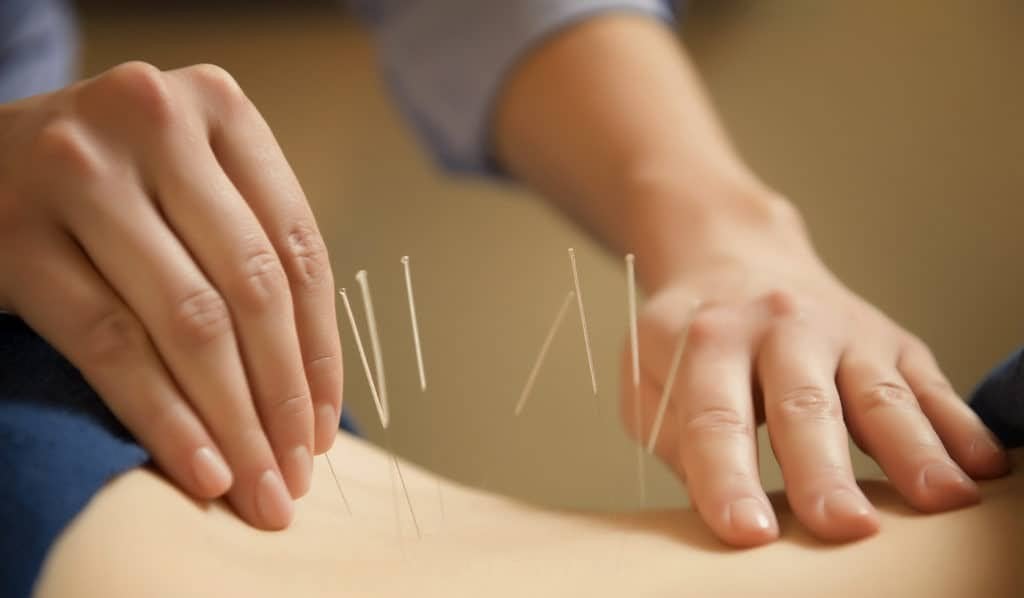
Thời gian châm cứu sẽ phụ thuộc vào tình trạng bệnh của bạn,
It is also very important that patients take care of themselves after treatment, especially during the first 24 hours. They may feel calm, relaxed, or sleepy. The advice is to rest and relax, even when feeling energized. Avoid any strenuous activity.
Eat healthy foods like fruits, vegetables and protein. Drink a lot of water. Avoid alcohol and beverages containing caffeine.
Do not use an ice pack as it can interfere with your body's energy flow. The patient can use a thermos bag instead. Applying some other physical therapy methods such as massage can help the blood circulation effect of acupuncture to be more effective.
Usually, any pain the patient experiences during treatment will subside once the treatment is stopped. They may also experience pain or worsening of their symptoms for a few days after treatment. However this should start to improve within a few weeks. Any mild bruising that occurs as a result of treatment will usually go away within a few days.
Contact your doctor or acupuncturist if you experience any unusual symptoms after treatment. Some people experience shortness of breath and pneumothorax after chest acupuncture.
Licensed acupuncturists and specialists are those who are authorized to perform acupuncture in any country in the world. Training, exam and licensing requirements vary from country to country.
Choudhury says, “I need to be cautious about getting treatment from a non-certified acupuncturist.” "And most accidents or negative outcomes are attributed to unqualified people."
If you are interested in acupuncture but are concerned about the pain it may bring, talk to your doctor or acupuncturist. This method is low risk and usually does not cause the patient to feel too much pain. You can also discuss with your doctor the results you want to achieve. This is especially important if you have any medical conditions you want to treat or are taking any medications. Your doctor can recommend an acupuncturist best suited to your needs.
Eat healthy foods like fruits, vegetables and protein. Drink a lot of water. Avoid alcohol and beverages containing caffeine.
Do not use an ice pack as it can interfere with your body's energy flow. The patient can use a thermos bag instead. Applying some other physical therapy methods such as massage can help the blood circulation effect of acupuncture to be more effective.
Usually, any pain the patient experiences during treatment will subside once the treatment is stopped. They may also experience pain or worsening of their symptoms for a few days after treatment. However this should start to improve within a few weeks. Any mild bruising that occurs as a result of treatment will usually go away within a few days.
Contact your doctor or acupuncturist if you experience any unusual symptoms after treatment. Some people experience shortness of breath and pneumothorax after chest acupuncture.
Licensed acupuncturists and specialists are those who are authorized to perform acupuncture in any country in the world. Training, exam and licensing requirements vary from country to country.
Choudhury says, “I need to be cautious about getting treatment from a non-certified acupuncturist.” "And most accidents or negative outcomes are attributed to unqualified people."
If you are interested in acupuncture but are concerned about the pain it may bring, talk to your doctor or acupuncturist. This method is low risk and usually does not cause the patient to feel too much pain. You can also discuss with your doctor the results you want to achieve. This is especially important if you have any medical conditions you want to treat or are taking any medications. Your doctor can recommend an acupuncturist best suited to your needs.
Please dial HOTLINE for more information or register for an appointment HERE. Download MyVinmec app to make appointments faster and to manage your bookings easily.
References: medicalnewstoday.com, healthline.com, health.harvard.edu
This article is written for readers from Sài Gòn, Hà Nội, Hồ Chí Minh, Phú Quốc, Nha Trang, Hạ Long, Hải Phòng, Đà Nẵng.

